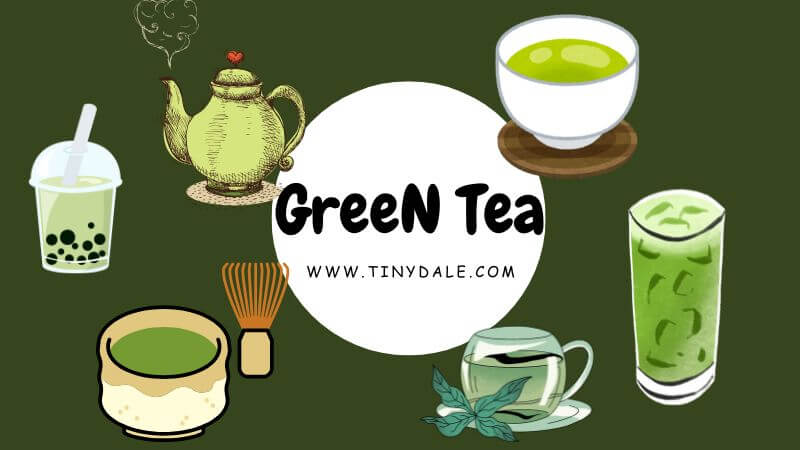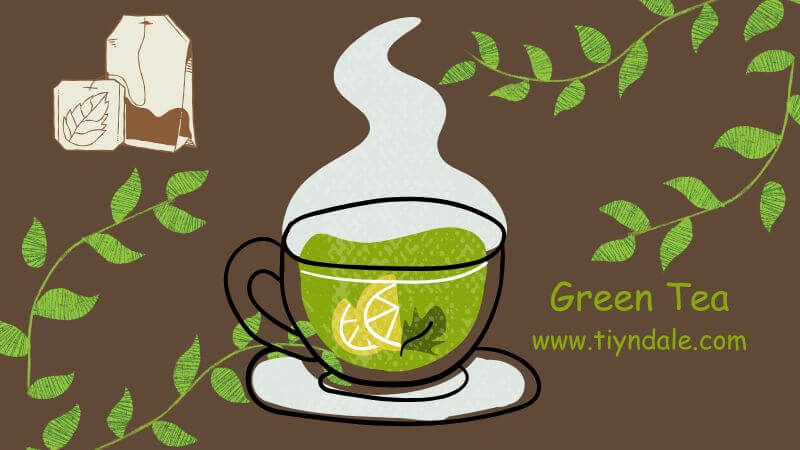Green tea was little-known ten years ago, but it has now cemented a permanent place in our country’s kitchens. Particularly for adults, green tea is well-known for its many health advantages, which include improved focus, a lower risk of cancer, and many more. However, is green tea for children safe? In order to answer this question, it is essential to comprehend the possible advantages and factors related to adding green tea to a child’s diet. Green tea has several benefits, such as improving metabolism and supplying antioxidants, but in order to protect the health of the younger generation, moderation and age-appropriate consumption should be given priority. To discover more about green tea for children, let’s continue reading.
What Is Green Tea? What Are The Benefits?
Made from unoxidized (unfermented) leaves that are mostly found in China and Japan, green tea is one of the most popular drinks in the world. It has a strong effect on the body and is among the healthiest drinks because it is packed with heart-healthy minerals and a number of antioxidants.
- It enhances cardiovascular health and avoids artery blockage, which may be beneficial in later life.
- Green tea’s potent antioxidant qualities are well known for lowering the chance of developing some types of cancer.
- It aids in preventing high blood pressure, high cholesterol, and high blood sugar.
Benefits Of Green Tea For Children
1. Combats inflammation that causes cancer
Flavonoids known as catechins—pronounced “KAH-tuh-kins”—are abundant in green tea leaves. Tea leaves contain a plant component called a polyphenol that has antioxidant properties. Epigallocatechin-3 gallate (EGCG), a catechin with anti-inflammatory qualities, is especially abundant in green tea. Antioxidants like EGCG reduce inflammation brought on by free radicals that harm cells.
However, other studies indicate that the antioxidant advantages of tea may be diminished by the protein and maybe fat in milk. Zumpano advises being careful about what you put in your green tea and attempting to drink it without milk. source
2. Promotes Dental Health
One of the most prevalent health issues affecting youngsters is tooth decay. In addition to helping with foul breath, Japanese green tea helps lower a child’s risk of dental cavities. According to research, Japanese green tea’s phytonutrient catechins help shield your child’s teeth and gums from cavity-causing bacteria. Bad breath is prevented by the sulfur in green tea. It’s crucial to maintain minimal usage nonetheless. It is sufficient to consume one cup daily (1 mug cup of 8 oz, or 236 ml). Too much green tea might cause teeth discoloration. Therefore, drink green tea sparingly.
3. Avoids Obstructed Arteries And Improves Concentration
Green tea keeps the heart pounding and the blood flowing by preventing artery blockages, which is very good for cardiovascular health. The outcome is controlled blood pressure.
Enhanced Focus
L-theanine, an important component of Japanese green tea, helps lower stress while simultaneously enhancing memory and focus. Additionally, polyphenols, a chemical substance found in green tea, enlarge blood vessels throughout the body and improve blood flow to the brain. This implies that your child’s brain will be well-fed and healthy. However, it’s important to note that Japanese green tea might exacerbate hyperactivity in kids who already have it, so be sure your child can safely consume it.
4. Good Hair And Skin
You should think about regularly providing your child with Japanese green tea if you want them to have strong, thick hair and lovely skin. Green tea includes EGCG, a chemical that can help make hair thicker, stronger, and healthier, in addition to its antioxidant qualities that will help prevent dandruff. Furthermore, polyphenols found in green tea aid in promoting hair development. This implies that you should include green tea in your child’s diet if you wish to enhance the health of their skin and hair.
Side Effects of Green Tea For Children
- Some children who drink too much green tea may become hyperactive and experience indigestion, nausea, vomiting, disorientation, and sleep problems.
- Over time, caffeine can cause anemia by interfering with your child’s body’s ability to absorb iron.
- Children’s bone density may also be impacted by excessive green tea consumption since it causes the body to excrete calcium through urine.
- Green tea may produce rashes in certain children who are allergic to it.
- Because of its high oxalic acid content, green tea may raise the risk of kidney stones in the future. source
Summary!
Although green tea’s high antioxidant content has many health benefits, its caffeine and tannin concentration raise questions when it comes to youngsters.
When deciding whether to include green tea in their child’s diet, parents should use caution, emphasize moderation, and consult a doctor.
Tinydale is on YouTube, Click here to subscribe for the latest videos and updates.
Follow Us: Facebook | Instagram | Twitter | Youtube | Pinterest



